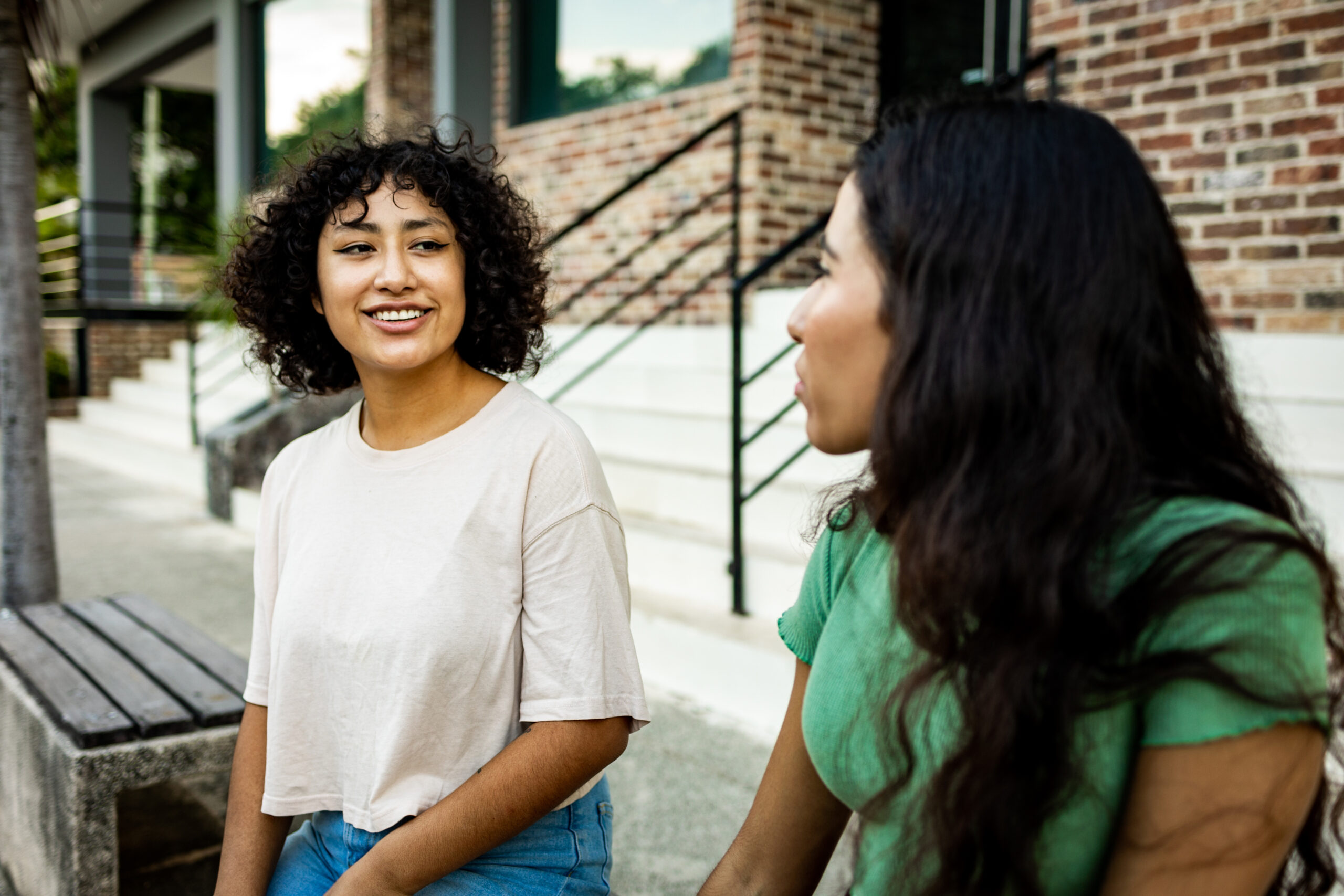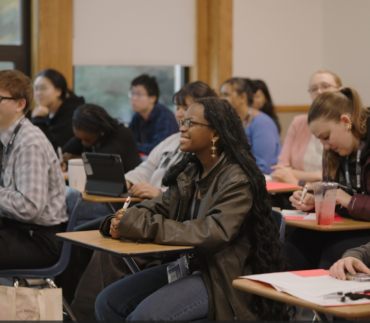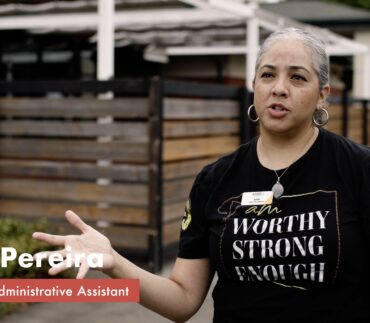Registered nurse Ida Sishu has launched her career supporting patients with cardiac issues at a Seattle hospital. Without an elective class she took in high school, she doesn’t know if she would be where she is.
“If I hadn’t had AVID, I might not have been successful,” she says. I’m not saying that because I doubt myself, but because I would have felt more overwhelmed in school.”
AVID began with College Spark funding at Sishu’s middle and high school between 2006 and 2014 in her hometown of Tukwila as part of an effort to expand the program in Washington state. Sishu was in the program between 2014 and 2018 and, like many AVID students, was the first in her family to go to college. Like them, she benefited from the additional academic, social, and emotional support that laid out a clear pathway to success beyond high school.


One Story Among Many
Erin Herda, Ethnic Studies and AVID teacher at Showalter Middle School, sees first-hand the many students like Sishu that the AVID program reaches. “With three to five AVID classes at Showalter in sixth, seventh and eighth grade and then four at Foster High School, we have tons of AVID students per year,” she says. “Also, I’m still in contact with almost every student I’ve taught.”
Herda was the reason that Sishu signed up. “Ms. Herda definitely advocated and really wanted me to join when I was in middle school,” she says. Sishu joined in 8th grade and continued throughout high school with AVID and social studies teacher Andrea Gamboa.
Originating in California, the AVID curriculum focuses on organization, the art of notetaking, going on college visits, career research, writing, study group skills, applying for scholarships and more. “We give them the tools to be self-sufficient in college,” says Herda.
As the district race and equity co-facilitator and on the board of directors of Washington State Ethnic Studies Now (WAESN), Herda has also helped to adapt the curriculum to their specific community. “In my AVID class alone, ten different languages are spoken,” she says. “We learn about each other’s backgrounds and bring students’ home life and identity into academics as something to be proud of.”
“My parents are from an Ethiopian background,” says Sishu. “They came to the U.S. for opportunities for my sister and I who were born and raised here.”
Without formal education themselves, Sishu’s parents wanted their children to go to college. “It was mandatory as much as it was to go to high school,” she says.
“In my AVID class alone, ten different languages are spoken. We learn about each other’s backgrounds and bring students’ home life and identity into academics as something to be proud of.”
Deep and Lasting Impact
Given her parents’ wishes, Sishu believes she would have gone to college with or without AVID. Still, the program provided what she needed. When she struggled, she knew what to do. “AVID helped me remember who I was and that what I’d been doing this whole time would help me finish college.”
Along with the practical aspects of knowing how to study, the program gave her a support network. In addition to having a cohort of fellow AVID students who also went to her chosen college, Washington State University, she also could call on Herda and Gamboa for support.
“To this day, I can talk to Ms. Herda and Ms. Gamboa anytime,” Sishu says. “And my AVID classmates, we’re grown and have degrees, and we still have a group chat, send pictures, and call each other family.”
The program’s effectiveness is notable. “The most exciting part is the impact,” says Herda. “Our AVID students have gotten the most scholarships and grants to colleges of any other student group, and around 90 percent go on to post-secondary options.”
Even so, the program’s funding isn’t certain. College Spark kept the program going during budget cuts and helped the program grow at both schools. Now, budget cuts loom again.
For Sishu, the program goes far beyond dollars. “I wouldn’t be the person I am today without AVID, without the support system I’ve had throughout,” she says. “Ms. Herda made us tight going in, and Ms. Gamboa helped us finish strong.”
In terms of the potential, that’s just the story’s beginning. Sishu and her classmates are still early in their career journeys, multiplied by all the other graduates and current AVID students. “I’m in a residency program, still learning what it’s like to be a nurse,” she says. “In the future, I plan on becoming a travel nurse, giving back to my community and the younger generation and people who came up the same way I did.”




